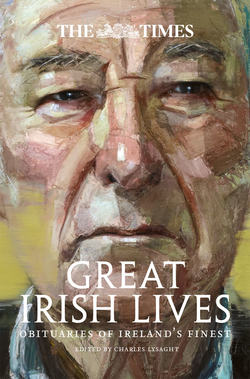Читать книгу The Times Great Irish Lives: Obituaries of Ireland’s Finest - Charles Lysaght - Страница 17
ОглавлениеOSCAR WILDE
1 DECEMBER 1900
A REUTER TELEGRAM from Paris states that Oscar Wilde died there yesterday afternoon from meningitis. The melancholy end to a career which once promised so well is stated to have come in an obscure hotel of the Latin Quarter. Here the once brilliant man of letters was living, exiled from his country and from the society of his countrymen. The verdict that a jury passed upon his conduct at the Old Bailey in May, 1895, destroyed for ever his reputation, and condemned him to ignoble obscurity for the remainder of his days. When he had served his sentence of two years’ imprisonment, he was broken in health as well as bankrupt in fame and fortune. Death has soon ended what must have been a life of wretchedness and unavailing regret. Wilde was the son of the late Sir William Wilde, an eminent Irish surgeon. His mother was a graceful writer, both in prose and verse. He had a brilliant career at Oxford, where he took a first-class both in classical moderations and in Lit. Hum., and also won the Newdigate Prize for English verse for a poem on Ravenna. Even before he left the University in 1878 Wilde had become known as one of the most affected of the professors of the aesthetic craze and for several years it was as the typical aesthete that he kept himself before the notice of the public. At the same time he was a man of far greater originality and power of mind than many of the apostles of aestheticism. As his Oxford career showed, he had undoubted talents in many directions, talents which might have been brought to fruition had it not been for his craving after notoriety. He was known as a poet of graceful diction; as an essayist of wit and distinction; later on as a playwright of skill and subtle humour. A novel of his, “The Picture of Dorian Gray,” attracted much attention, and his sayings passed from mouth to mouth as those of one of the professed wits of the age. When he became a dramatist his plays had all the characteristics of his conversation. His first piece, Lady Windermere’s Fan, was produced in 1892. A Woman of no Importance followed in 1893. An Ideal Husband and The Importance of Being Earnest were both running at the time of their author’s disappearance from English life. All these pieces had the same qualities – a paradoxical humour and a perverted outlook on life being the most prominent. They were packed with witty sayings, and the author’s cleverness gave him at once a position in the dramatic world. The revelations of the criminal trial in 1895 naturally made them impossible for some years. Recently, however, one of them was revived, though not at a West-end theatre. After his release in 1897, Wilde published “The Ballad of Reading Gaol,” a poem of considerable but unequal power. He also appeared in print as a critic of our prison system, against the results of which he entered a passionate protest. For the last three years he has lived abroad. It is stated on the authority of the Dublin Evening Mail that he was recently received into the Roman Catholic Church. Mrs Oscar Wilde died not long ago, leaving two children.
* * *
